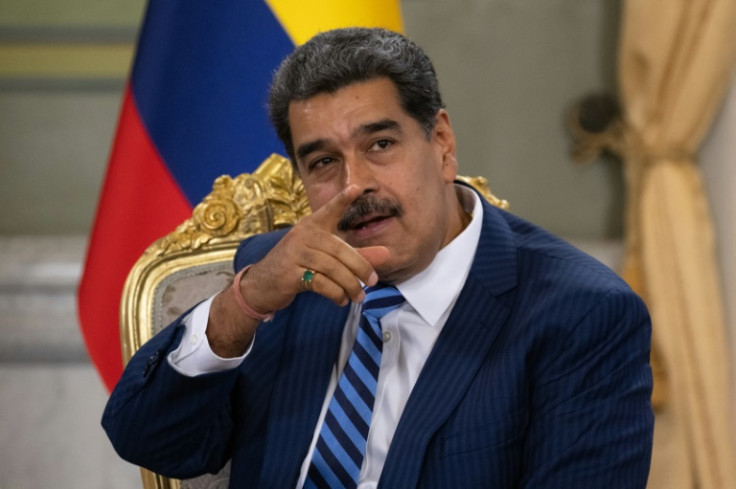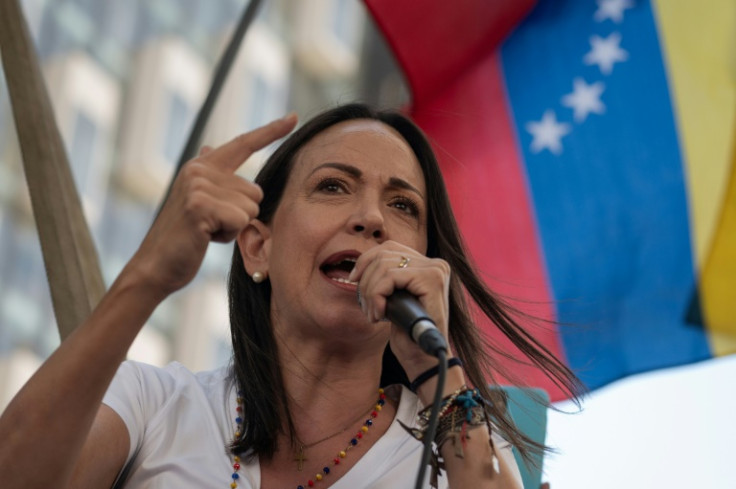
The United States' Drug Enforcement Agency (DEA) ran a secret operation where undercover agents were sent to Venezuela to build drug-trafficking cases against the country's leaders, The Associated Press reported on Thursday.
The news agency, which cites a secret memo, argues U.S. authorities were aware they were arguably breaking international law. "It is necessary to conduct this operation unilaterally and without notifying Venezuelan officials," reads a passage of the memo.
"Operation Money Badger" targeted, among others, Venezuelan President Nicolás Maduro and some of his closest allies, including businessman Alex Saab, who was recently freed from U.S. custody as part of a prisoner swap.
It is not clear whether the Venezuelan government was aware of the document before its publication, but Maduro once again accused the DEA and the CIA of trying to destabilize the country.
"I don't think President Biden is involved, but the CIA and the DEA operate independently as imperialist criminal organizations," he said.
Venezuela's leadership has long been accused of taking part in drug-trafficking operations, most notably running the Los Soles cartel. In fact, the Department of Justice presented a formal accusation against Maduro and other 14 high-ranking officials in March 2020.
Then-Attorney General William Barr said that "for more than 20 years, Maduro and a number of high-ranking colleagues allegedly conspired with the FARC, causing tons of cocaine to enter and devastate American communities."
"The scope and magnitude of the drug trafficking alleged was made possible only because Maduro and others corrupted the institutions of Venezuela and provided political and military protection for the rampant narco-terrorism crimes described in our charges," added the accusation, which offered $15 million for information that could lead to the arrest and/or conviction of Maduro.
The document reported by AP was created in 2018, also during the Trump administration and in the middle of its "maximum pressure" campaign against Maduro. The Venezuelan government had declared itself winner of what a large part of the international community, the U.S. and the EU included, called a sham election.
The events led them and about 50 other countries to recognize the then-president of the Legislative Assembly, Juan Guaidó, as the country's interim President in January 2019. The entire operation, however, was created in 2013 and investigated around 100 Venezuelan insiders, the outlet said.
The Biden administration largely kept the sanctions imposed by its predecessor, but recently rolled back some of them as part of broader negotiations (called the Barbados agreements) aimed at moving toward freer and fair elections this year.
However, they experienced a setback in the past days after the Venezuelan Supreme Court upheld a decision barring María Corina Machado, the country's main opposition leader and likely opponent of Maduro in the elections, from competing. Machado is a long time foe to Maduro and won the opposition's independently run presidential primary with 90% of the votes last year.

This led the Department of State to reimpose sanctions on Venezuela's oil and gas as well as its state-owned mining company. The Department of Treasury also gave companies transacting with, Minerven, Venezuela's state-owned gold mining company until Feb. 13 to wind down operations.
In response, Delcy Rodríguez, vice president to the Maduro government, said that if the sanctions aren't removed, the country will stop receiving deported Venezuelan migrants starting Feb. 13.
The U.S. Department of State released a statement saying that the U.S. will continue to to work with Venezuela if they adhere to the rules of the Barbados agreement.
© 2025 Latin Times. All rights reserved. Do not reproduce without permission.





